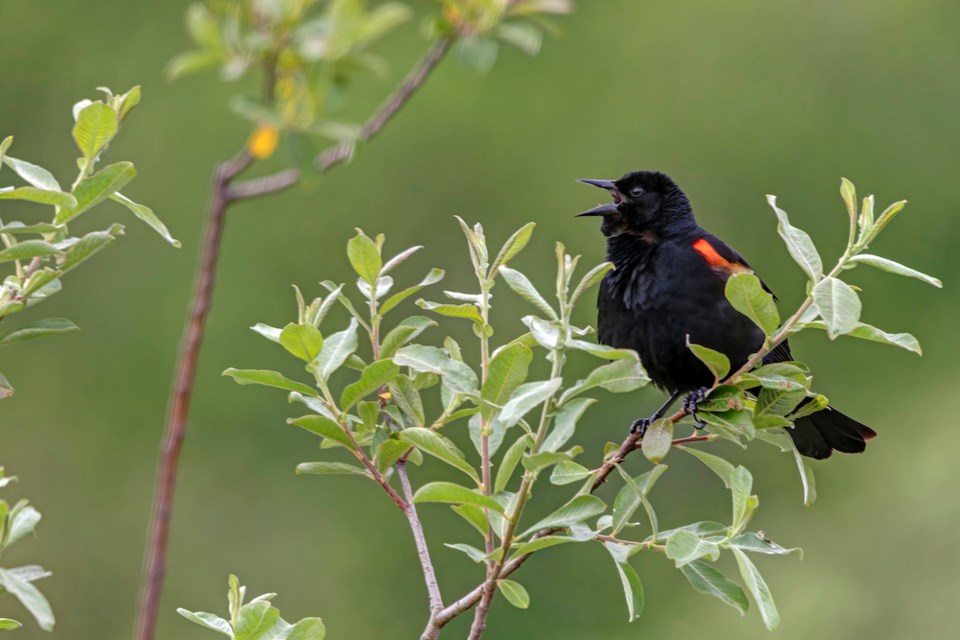During the first week of March the temperature has been stubbornly stuck in the range of 5 to 7.5C daily highs, whereas last year it was 9 to 11C. Consequently, any hopes of an early arrival of swallows has been squelched, and it may take some warm air from a southerly high pressure system to encourage them northward. The first swallows to arrive are violet-green, and tree swallows, with the familiar barn swallow not arriving until after mid-April.
Despite the cool weather, the momentum of spring is under way, but it mainly involves those species that winter with us rather than migrants arriving from the south. So far, only one migrant species has put in an appearance, with an early turkey vulture on Feb. 27. This species occasionally arrives in February, but will become common during March. One of the clearest indicators that spring is imminent is the hooting of the sooty grouse. To hear this, you will need to be approximately above the elevation of the powerline, but any of the local logging roads will take you in to their habitat. The sound is a low frequency “hoop, hoop” that sounds similar to an owl. Though they are very vocal in the springtime, you will be lucky to actually see one, as they sit tight in a tree, and their voice can be ventriloqual, which makes them difficult to locate.
There are four regular owl species on the Sunshine Coast and they are most vocal in the early spring, February and March, as they “sing” (hoot) to attract a mate. All four have been heard: great horned, barred, pygmy and saw-whet. In Pender Harbour, Michael Jackson reports that a common loon has returned to Garden Bay Lake and has been heard yodelling. Loons winter on salt water and return to freshwater lakes and ponds to breed.
Some of our wintering passerines (perching/songbirds) are finding their singing voices again. At Sargeant Bay on March 5, the male red-winged blackbirds in the wetland were singing their “congareek” song. The most welcome song I heard was the long, sweet warble of a ruby-crowned kinglet, the first of the year for me. Ruby-crowned kinglets are a common wintering species, but their winter vocalization is confined to a subdued “ji-dit.” Come springtime, they break out into an effusive torrent of song, quite remarkable in its duration and loudness, for one of our tiniest birds. During April many thousands of these birds will pass through the Sunshine Coast route to their more northern breeding grounds.
To report your sightings or questions contact [email protected] or 604-885-5539. Good Birding.




